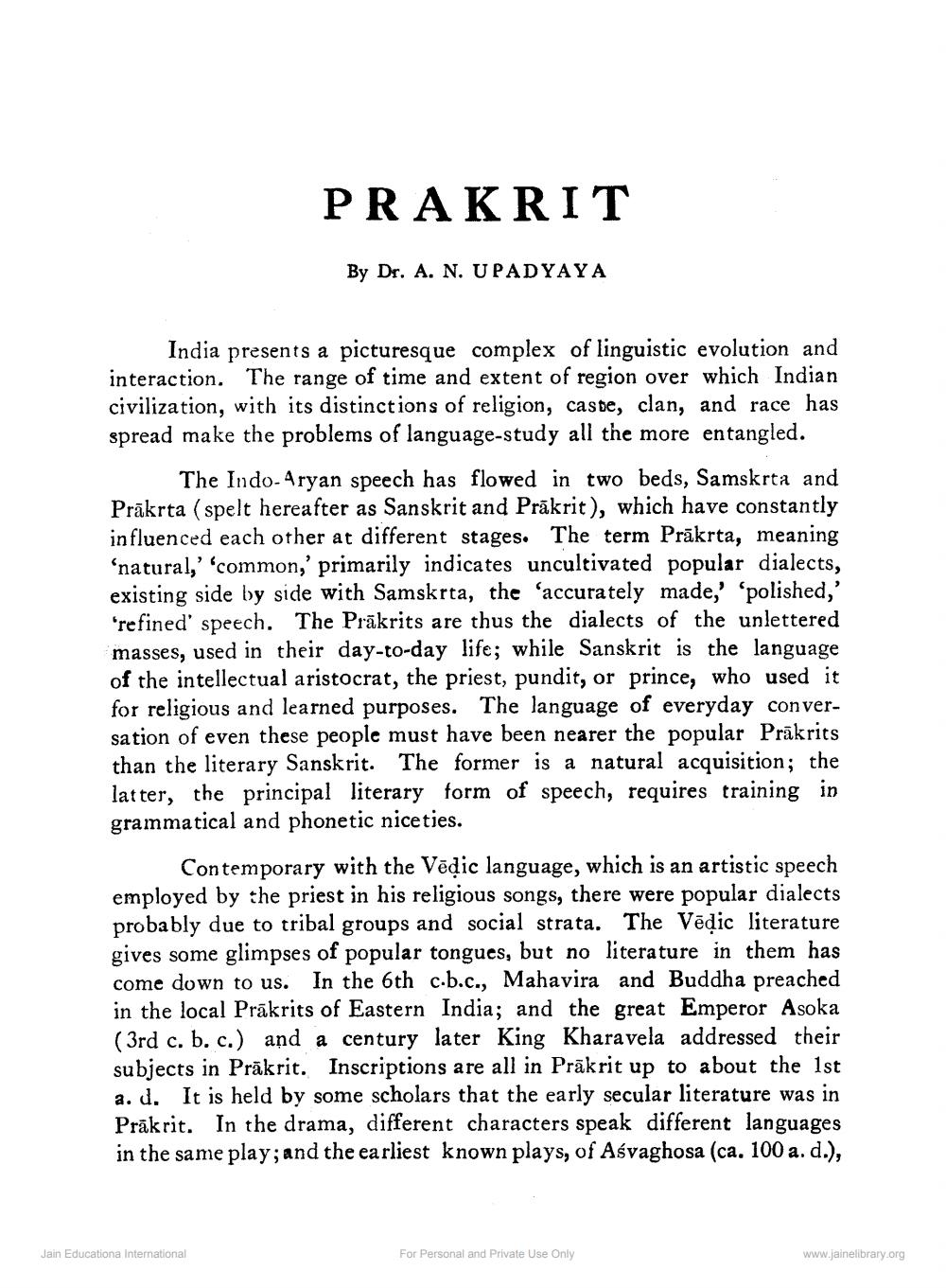________________
PRAKRIT
By Dr. A. N. UPADYAYA
India presents a picturesque complex of linguistic evolution and interaction. The range of time and extent of region over which Indian civilization, with its distinctions of religion, casse, clan, and race has spread make the problems of language-study all the more entangled.
The Indo-Aryan speech has flowed in two beds, Samskrta and Prākrta (spelt hereafter as Sanskrit and Prākrit), which have constantly influenced each other at different stages. The term Prākrta, meaning ‘natural,''common,' primarily indicates uncultivated popular dialects, existing side by side with Samskrta, the ‘accurately made,' 'polished,' "refined' speech. The Prakrits are thus the dialects of the unlettered masses, used in their day-to-day life; while Sanskrit is the language of the intellectual aristocrat, the priest, pundit, or prince, who used it for religious and learned purposes. The language of everyday conversation of even these people must have been nearer the popular Prākrits than the literary Sanskrit. The former is a natural acquisition; the latter, the principal literary form of speech, requires training in grammatical and phonetic niceties.
Contemporary with the Vēdic language, which is an artistic speech employed by the priest in his religious songs, there were popular dialects probably due to tribal groups and social strata. The Vēdic literature gives some glimpses of popular tongues, but no literature in them has come down to us. In the 6th c.b.c., Mahavira and Buddha preached in the local Prākrits of Eastern India; and the great Emperor Asoka (3rd c. b. c.) and a century later King Kharavela addressed their subjects in Prākrit. Inscriptions are all in Prākrit up to about the 1st a. d. It is held by some scholars that the early secular literature was in Prākrit. In the drama, different characters speak different languages in the same play; and the earliest known plays, of Aśvaghosa (ca. 100 a. d.),
Jain Educationa International
For Personal and Private Use Only
www.jainelibrary.org




